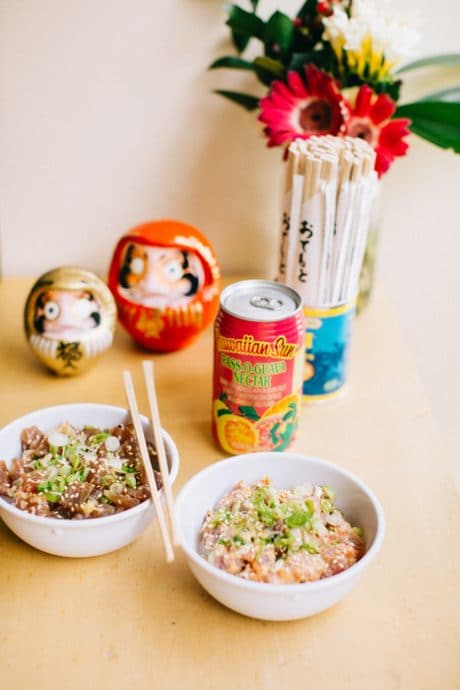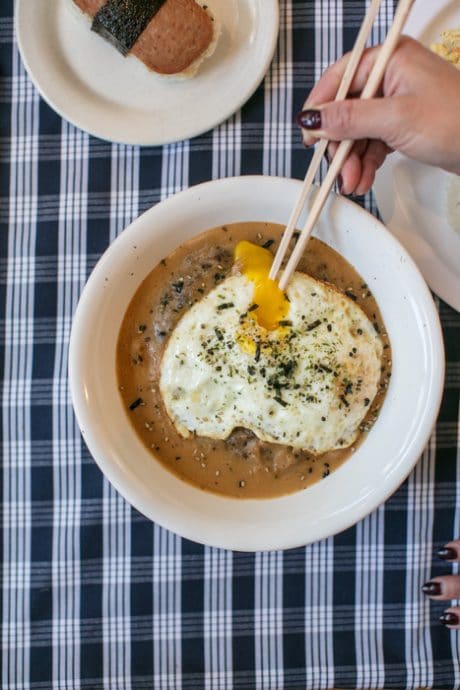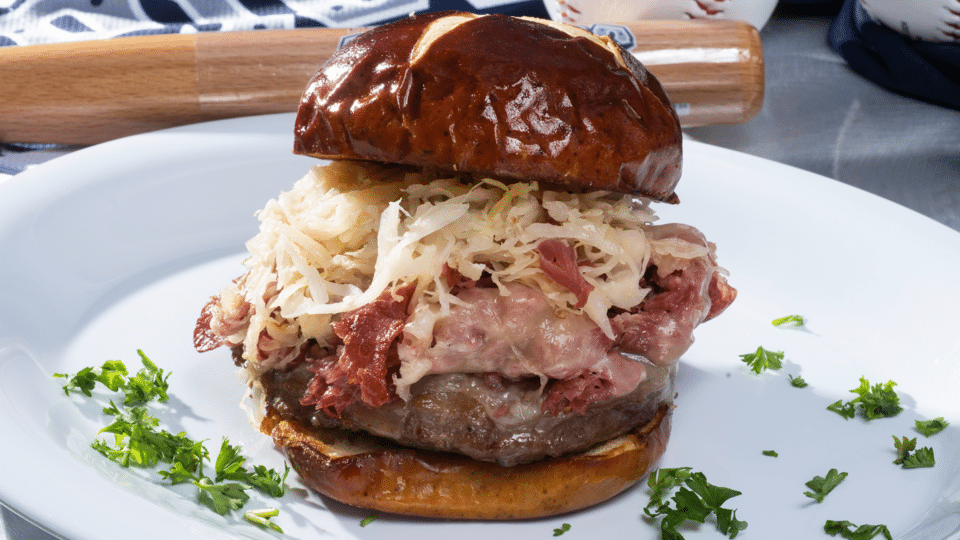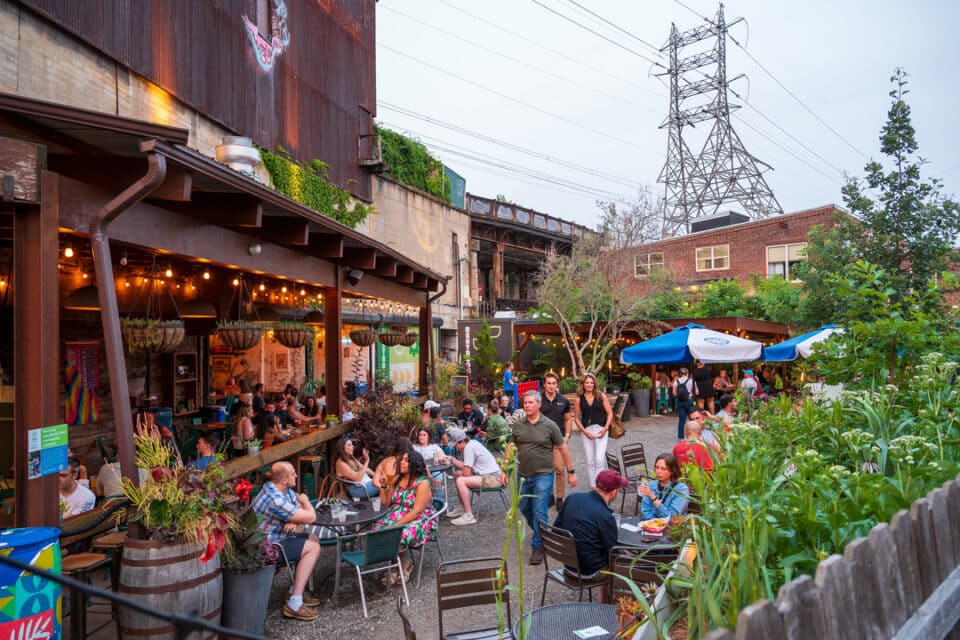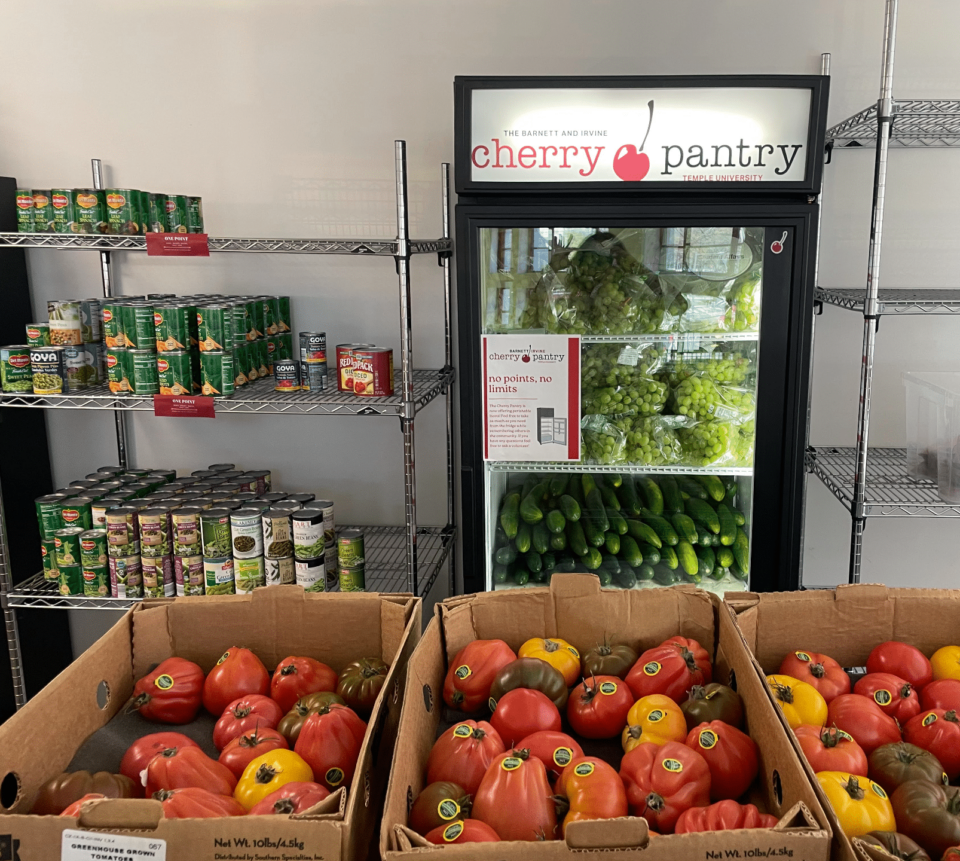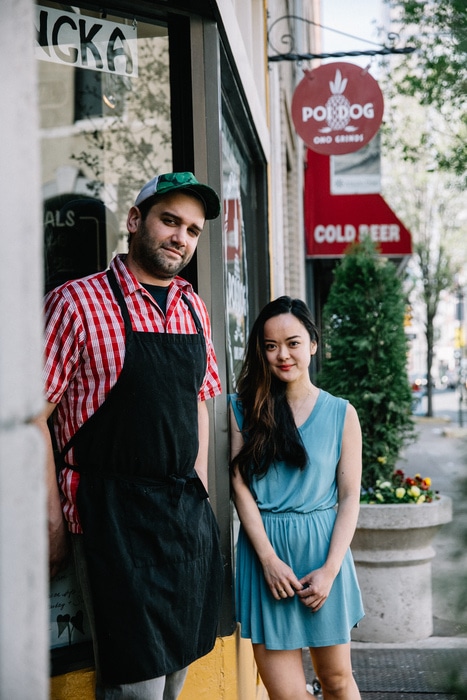 Poi dog: Hawaiian slang term for “mutt,” or, as the term has evolved, a person or entity of mixed ancestry. Fittingly, at Center City’s Poi Dog, the hybrid deliciousness of local Hawaii food is on full display.
Poi dog: Hawaiian slang term for “mutt,” or, as the term has evolved, a person or entity of mixed ancestry. Fittingly, at Center City’s Poi Dog, the hybrid deliciousness of local Hawaii food is on full display.
Owned and operated by Kiki Aranita and Chris Vacca, the Poi Dog concept started out as a food truck and quickly expanded into catering, delighting hordes of nostalgic Hawaiian expats and mainlanders alike. After four years of success, the duo decided to expand to a brick-and-mortar business, snapping up a prime piece of real estate near Rittenhouse Square.
Aranita, whose father’s family hails from O’ahu, split her childhood between Hawaii and Hong Kong before moving to the mainland for college. While Philadelphia has many culinary virtues (see PA Eats’s collected archives for reference), she found that the food of Hawaii was not easy to find in the region. The solution? Provide it herself. Banding together with Vacca, whom she met while enrolled in a graduate program at Bryn Mawr College, the two dropped out of school and started serving up plate lunches and spam musubi out of a tiny ex-taco truck.
Aranita explains that “a lot of things we have on the menu because they are things that we miss. For example, spicy ahi poke or kalua pig and cabbage served with rice and mac salad. The two scoops of rice and one scoop of macaroni salad is a standard in Hawaii. That in combination with any kind of meat, that brings me home.”
Or, as Vacca quips, “there was only so much that we could bring back from Hawaii.”
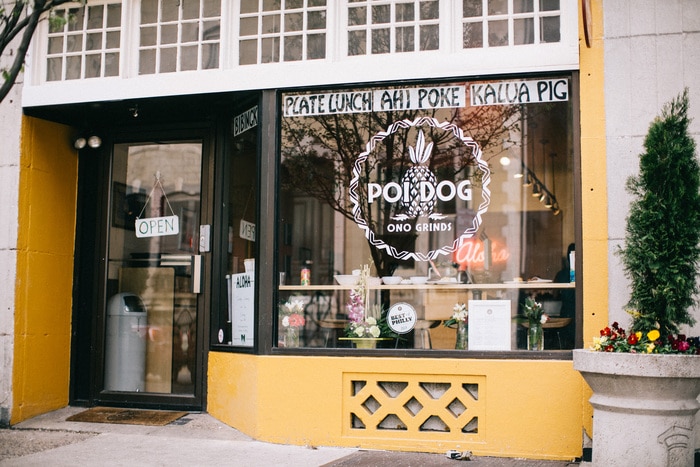
The food at Poi Dog is steeped in the culinary traditions of Hawaiian local food. This is distinct from simply “Hawaiian food,” which refers to the traditional cuisine of the indigenous people of Hawaii, such as poke and kalua pork.
Hawaiian local food, as Aranita details, “is based on the blend of food that came about once people started immigrating to the islands to work on the sugarcane plantations, including a lot of my ancestors … people came from the Philippines, from China, from Japan, from Okinawa, and eventually Korea and Portugal and Puerto Rico. They came from all over. All these people came together and contributed dishes that are easily served with two scoops of rice and one scoop of macaroni salad.”
While Poi Dog’s menu is rooted in a specific sense of place, that doesn’t mean there isn’t room for experimentation. Take a recent special, the chicken adobo-fried chicken. Chicken adobo is a classic dish of the Philippines and is also popular in Hawaii, which has a large Filipino population.
“I don’t know why nobody’s really thought to take chicken adobo and fry it,” says Aranita. “But that’s what we do. We make chicken adobo with bone-in, skin-on chicken thighs and then we take that chicken fry, batter it and fry it. So then it becomes chicken adobo-fried chicken.”
There are challenges, of course, to operating a Hawaiian local food joint thousands of miles way from Hawaii. Ingredient sourcing, for one. The solution: Aranita’s family in Hawaii, who bundle up seaweed, Hawaiian salt and other ingredients in regular shipments to Poi Dog. And when the two owners visit Hawaii, they stuff their suitcases full of local delicacies and supplies.
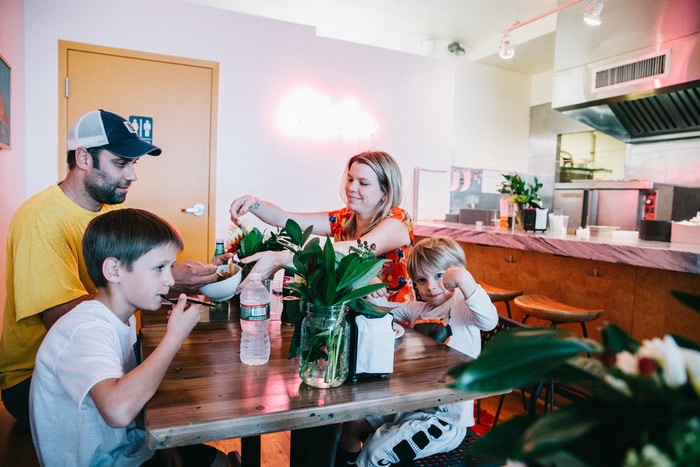
But beyond these practical concerns, there’s a broader political question implicit in Poi Dog’s food. How does one share the foodways of a culture that has simultaneously been suppressed and exoticized by the larger nation it finds itself a part of?
“When you’re talking about this food, you’re making a political statement. If you’re not well-versed in the culture, I think it’s very easy to upset people.” says Aranita. “My dad was born before Hawaii became a state. There’s still a lot of anger about how Hawaii was treated. It’s easy to look at it as a vacation paradise, but I mean, a monarchy was overthrown. These are things you have to think about when representing Hawaiian culture.”
Ultimately, though, Poi Dog is less of an exercise in Hawaiian cultural stewardship and more of a deeply personal exploration of the unique power of food and the places that serve it to call forth memory.
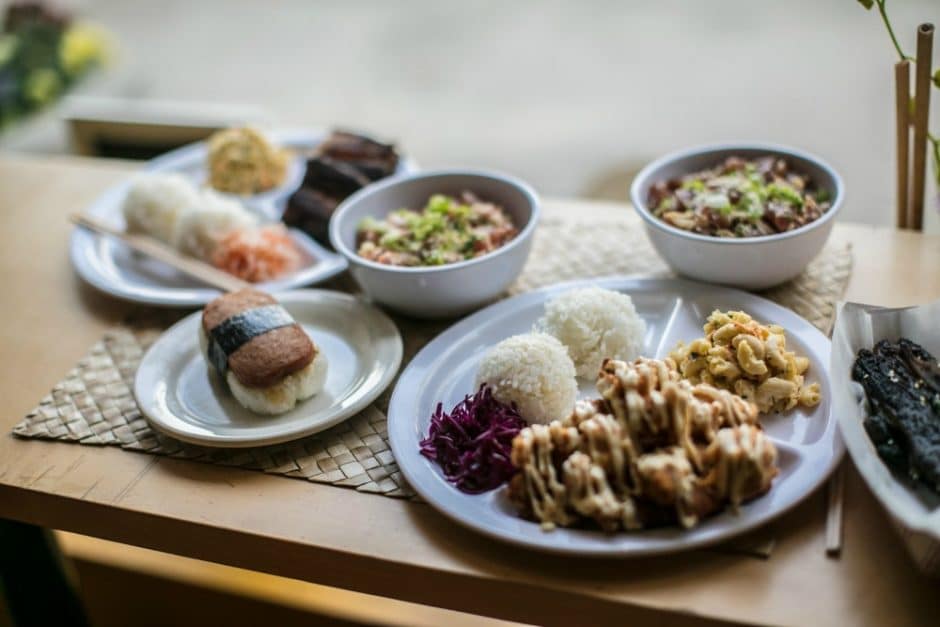
Discussing the Rittenhouse storefront, Aranita notes that “there are elements of my childhood and my home everywhere. My aunt made that lei. My grandfather painted these paintings … we had our hands in every tiny aspect of our place. Those are our grandparents on the wall. [Vacca’s] grandfather was stationed in Pearl Harbor in the Navy. These are my grandparents’ wedding pictures. Every single tiny little bit of this place to me feels like an extension of my home.”
In the end, she concludes, “I think even more important to me than preserving a larger culture is preserving elements of my childhood.”
Find Poi Dog at 100½ S. 21st St. in Philadelphia; phone: (215) 279-7015.
- Photos: Neal Santos
